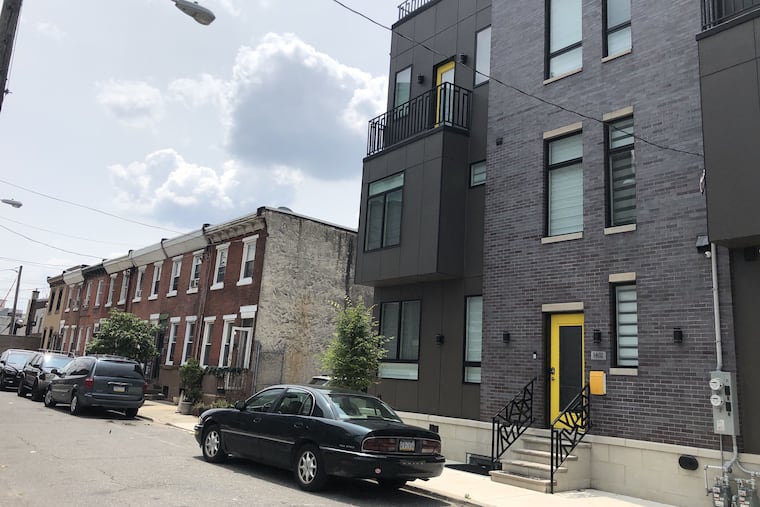Gentrification displaced my family from Point Breeze | Opinion
This month's Philly Fed study suggests gentrification can have benefits. That's not what my family experienced.

For those of us who have felt the pressure of gentrification and been pushed out of our neighborhoods, our personal stories tell the real costs of displacement — experiences that are not counted in the Federal Reserve Bank study published this month.
I am a volunteer with the Women’s Community Revitalization Project (WCRP) and was a resident of Point Breeze for 16 years before moving to the Northeast this past spring. There were a number of reasons for me to leave South Philly but a big one was the lack of affordability. In fact, I found my options of where to live in this city very limited because gentrification is happening all over and prices are rising.
I became a volunteer with WCRP because I felt personally affected by the lack of affordable housing and wanted to learn how I could come together with other families that are struggling and suffering because of this crisis. With WCRP, we are fighting for land to develop low-income rental housing, establishing a community land trust to ensure permanent housing affordability, and working with over 60 partner organizations to advocate for equity in land and housing policies across the city.
When my 12-year-old son and I lived in Point Breeze, we lived with my mom. My son and I had to share a room. It’s not what he wanted and it’s not what I wanted but it was our necessary reality. My mom eventually had to leave her house because she was unable to keep up with home repairs; the house became unsafe and she was wait-listed for help by city programs. When she left our house, I tried to get my own place — but everywhere I looked in the neighborhood was out of my price range.
The recent Federal Reserve study, as well as reporting and editorializing of it, suggests that gentrification helps people living in poverty through “exposure" to higher education and employment levels. This would mean my family would be helped by just being close to wealth. But often times, newcomers want to distance themselves from longtime residents. They want to change the feel of the neighborhood and get rid of important community institutions. Any supposed benefit of proximity is canceled out by indifference and mistrust on both ends.
The people who say that gentrification can be helpful are the same people who go into communities and use words like “growth” and “opportunity.” The “growth” and “opportunity” that comes from newcomers into a neighborhood often fails to benefit the long-term residents. There was a tennis court near the park at Wharton Square (by 23rd and Reed) that went unused for years. There were no nets up and children used the flat surface to ride bikes. A local church briefly used it for movie nights. After I moved, the tennis court was rehabbed. The ground was painted and new nets were put up. It made me angry because I knew that the court was fixed up to benefit newcomers, after years of neglect.
Occasionally new and long-term residents find ways to collaborate — when recent arrivals wanted to welcome dogs to another neighborhood park in South Philly, we collectively agreed to designate a dog-friendly area and leave the rest of the park alone so it would stay clean and safe for our children. But that sort of compromise that is fair to both sides remains the exception, not the rule.
I challenge the Federal Reserve and the media to talk to more long-term residents and get their firsthand reactions to understand the real challenges they face. People are not only being pushed out of their neighborhoods, but watching helplessly as their neighborhoods are turned into places they don’t recognize. Ask my neighbors if reducing their exposure to poverty lifted them out of hardship or quite literally, just moved them out-of-sight and out-of-mind.
When it comes to discussing gentrification, let’s remember that there is more to the story than just data points.
Angelita Ellison is a long-term resident of Philadelphia and a volunteer with the Women’s Community Revitalization Project. She lives in Northeast Philly with her son.